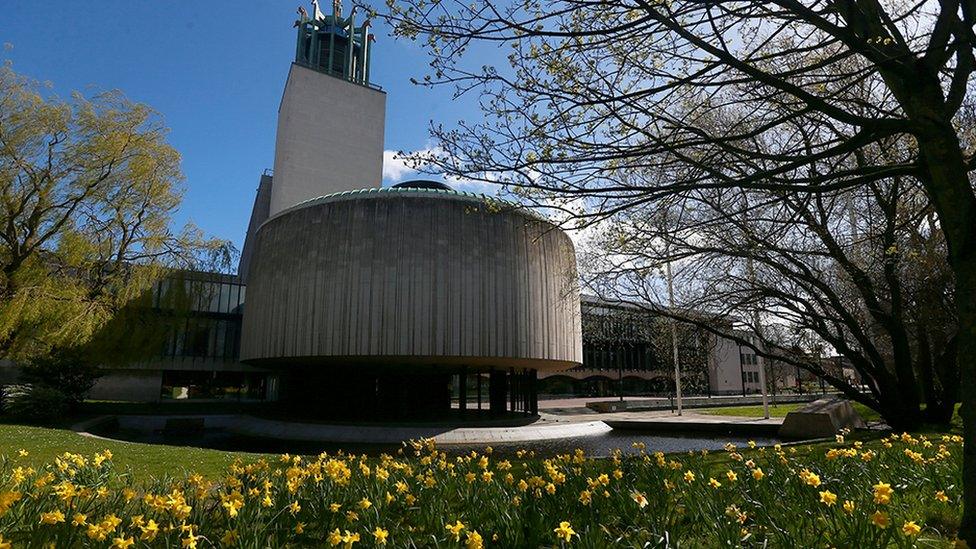North East facing 'challenging' social worker shortage
- Published

The report for Newcastle City Council said the number of children being put into care had increased
The north east of England is facing a "challenging" shortage of social care workers, with vacancies at a five-year high, a council boss has warned.
A report for Newcastle City Council said the number of children being put into care had increased and was expected to rise further.
But qualified social workers are leaving for better-paid agency work, a children's services director said.
The council said it was seeking ways to recruit more social workers.
Average caseloads for children's social workers in Newcastle jumped from 5.9 in August 2019 to 23.3 in August 2022 with services losing staff, the Local Democracy Reporting Service said.
It added that despite that the number of youngsters needing care placements continued to rise "significantly higher than the national average".
A report to the council's audit committee said the city had 687 children and young people in care at the end of August, a rate of 117 per 10,000 children up from about 90 per 100,000 in 2016.
'Cost of living'
Those numbers are expected to climb by a further 15% by 2025.
Children's services director Cath McEvoy-Carr told the committee there was a national crisis with placements for looked-after children "both in terms of cost and quality".
She added a shortage of staff "impact[ed] on our ability to be able to ensure we can deliver the same quality of services".
She warned qualified staff were leaving North East councils for better-paid agency work.
Ms McEvoy-Carr said that, while the region's local authorities have a "memorandum of understanding" not to pay social workers above a certain rate so not to be in competition with each other, the dilemma was leading some authorities to break that pact.
"We are seeing staff leave because of the cost of living crisis," she said.
"They want to work for agencies because they get paid significantly more money."
'Systemic problem'
She also reported there were not enough social workers qualifying locally to fill vacancies in the North East, and councils were working with universities to address that, while some who were at university during the pandemic were not "fully prepared" to go into work.
Mrs McEvoy-Carr confirmed the council was seeking ways to change its staffing so it could take on people who were "more skilled but without a professional qualification".
Audit committee chair Hamish Moore said he feared the staff shortages were a "systemic, long-term problem" facing the care sector.

Follow BBC North East & Cumbria on Twitter, external, Facebook, external and Instagram, external. Send your story ideas to northeastandcumbria@bbc.co.uk, external.